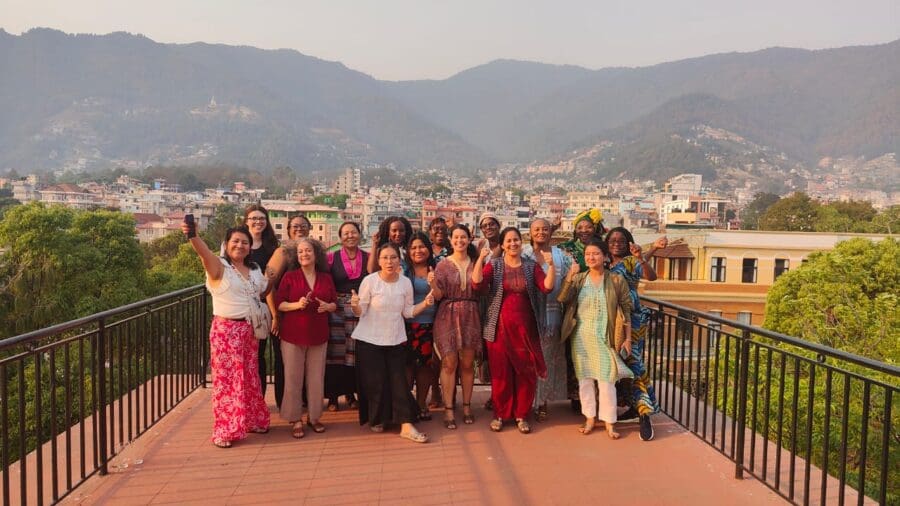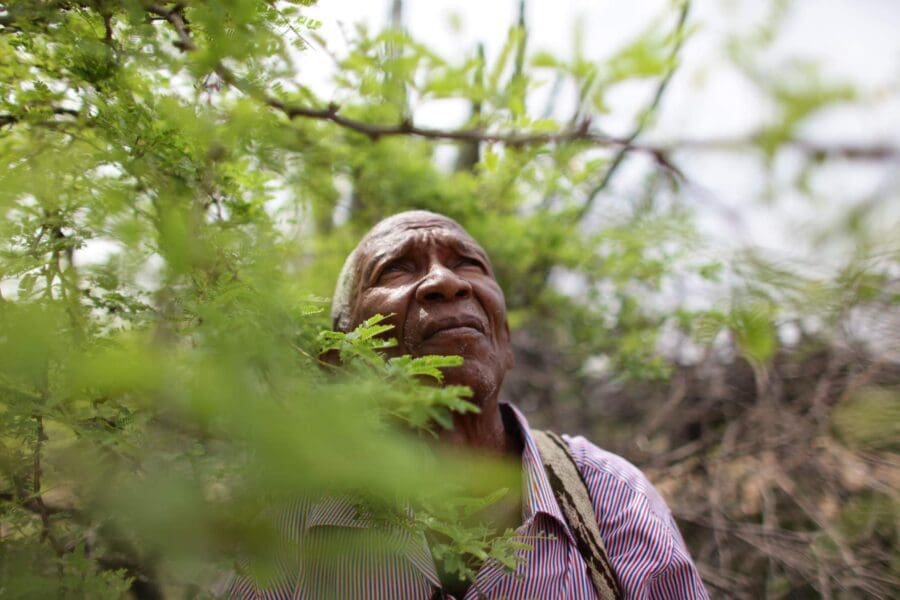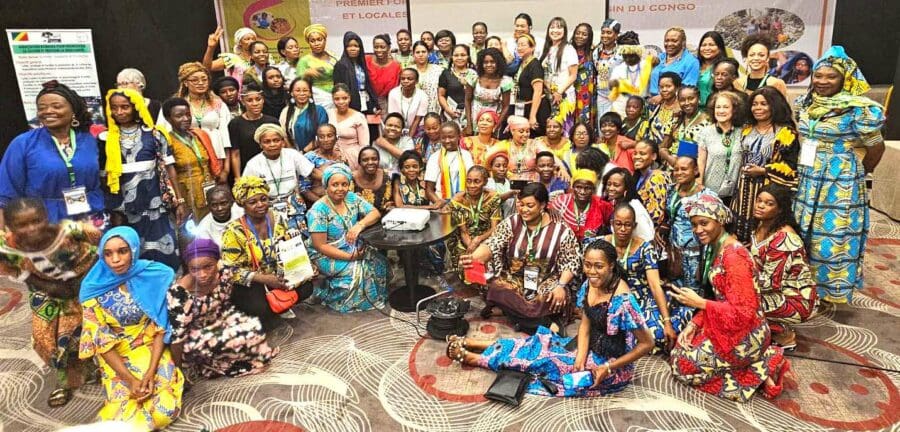- Investment in gender equality is declining and Indigenous and Afro-descendant women’s rights organizations are especially marginalized.
- Between 2016 and 2020, of the $28.5 billion in Official Development Assistance (ODA) funds designated to support women and girls, only 1.4% went to organizations working with Indigenous women.
- In 2018–2019, Afro-descendant women, girls, and trans people received less than 0.5% of global funding.
October 22, 2024 (Cali, Colombia): A new study examining the state of global financing for Afro-descendant, Indigenous, and local community women was launched today at the UN Convention on Biological Diversity (CBD) COP taking place this week in Cali, Colombia.
The study, Is Global Funding Reaching Indigenous, Afro-descendant, and Local Community Women? states that between 2019 and 2022, there was a 2% decrease in Official Development Assistance (ODA) funding for organizations focused on women’s rights and non-governmental organizations working on gender issues, from $891 million in 2019–2020 to $631 million in 2021–2022. The latter figure represents less than 1% of total ODA in that period.
The study addresses a crucial lack of data on gender equity-focused funding and was launched by the Rights and Resources Initiative (RRI) and the Women in Global South Alliance (WiGSA). It also notes that while international funding to support the land and forest tenure rights of Indigenous Peoples, Afro-descendant Peoples, and local communities increased between 2011 and 2020, investment in movements and organizations focused on gender equality decreased.
Indigenous and Afro-descendant women’s rights organizations are being especially marginalized in this funding. Between 2016 and 2020, of the $28.5 billion designated to support women and girls, only 1.4% went to organizations working with Indigenous women, reported International Funders for Indigenous People (IFIP) and the International Indigenous Women’s Forum (FIMI).
In the case of Afro-descendant women, data on the allocation of resources is limited. According to the Black Feminist Fund, funds received in 2018-2019 for Black girls, women, and trans people were less than 0.5% of global funding of foundations.
“We are concerned that biodiversity continues to be discussed without taking into account the voices of Indigenous women, because for us, nature, our identity, and territory are one. The ideal result with the launch of this study at COP16 is that the mandates that come out of this convention take into account the voices of women who are the most affected by extractivism and climate change,” said Ketty Marcelo, an Asháninka leader from the central jungle region of Peru, President of the National Organization of Andean and Amazonian Women of Peru (ONAMIAP), and member of WiGSA.
According to the study, most current funding mechanisms are not sufficiently responsive to communities’ needs, are not gender inclusive, and lack flexibility, transparency and mutual accountability between donors and recipients. In addition, they lack a long-term vision to address diverse community needs and are not timely or accessible to many community-driven organizations.
Women’s organizations also face underfunding due to pre-existing barriers to accessing funds, such as the limited availability of public information on calls for proposals on English-only platforms, short deadlines for filling out forms and documents, and lack of donor knowledge about the context in which organizations operate, further restricting their possibilities of accessing these funds.
“Women have often been excluded from funding because of assumptions about their capacities and doubts about their ability to manage projects. However, even without financial support, they have been effectively protecting their forests,” says Omaira Bolaños, RRI’s director of Latin America and Gender Justice programs. “Indigenous, Afro-descendant, and local community women are calling for change: they want direct access to funding and to no longer be marginalized in climate finance.”
The study also identifies stereotypes and biases in funding and donor relations and some of the major barriers to equitably accessing financial support. Women often face greater scrutiny and lower expectations for results compared to male-led organizations.
“We are protecting the rivers, oceans, lands, and forests, but we’re not getting the financial support for that protection. We are protecting our territory but we don’t have access to collective land rights. That is why WiGSA is trying to build a strong community to discuss the common issues and opportunities of the women in the Global South,” said Bharati Pathak, a WiGSA member who serves on the executive board of the Women Rights and Resource Network (WRRN), Nepal.
Importantly, this study highlights the urgency of donors prioritizing adequate funding for Indigenous, Afro-descendant, and local community women’s organizations that have historically been excluded from decision-making processes, where more inclusive and effective practices can be adopted to support them in their crucial role as environmental defenders and in their community leadership processes.
“We, the frontline women, are the stewards of biodiversity. Unlock the finance and directly invest in us and watch us as we transform conservation efforts into a thriving legacy for generations,” said Mina Beyan, Programs Director at the Social Entrepreneurs for Sustainable Development (SESDev) in Liberia and a WiGSA member.






